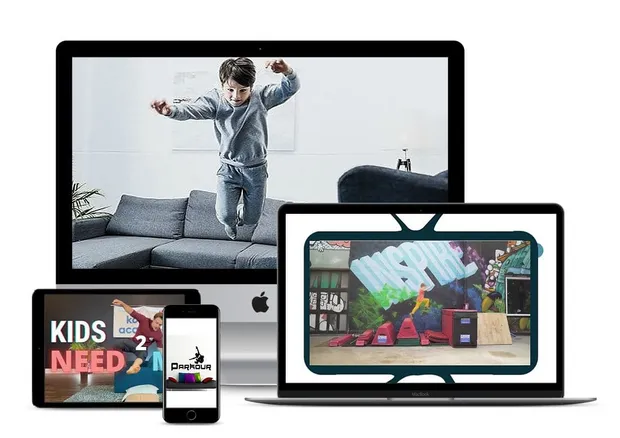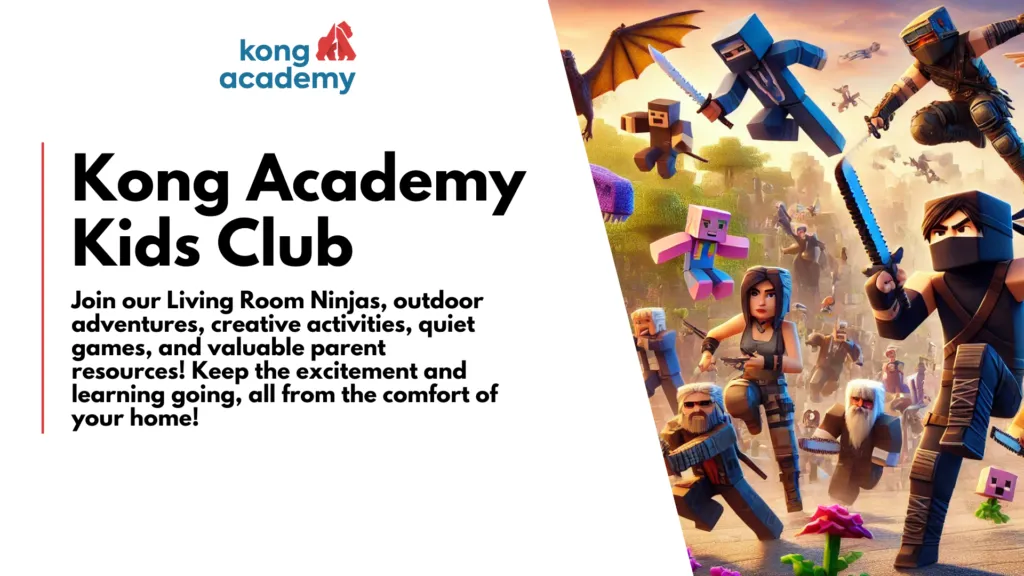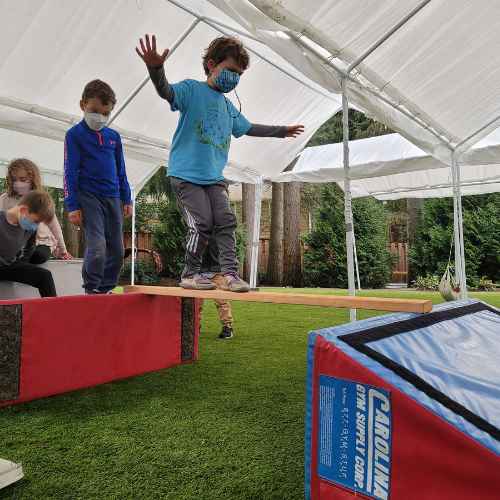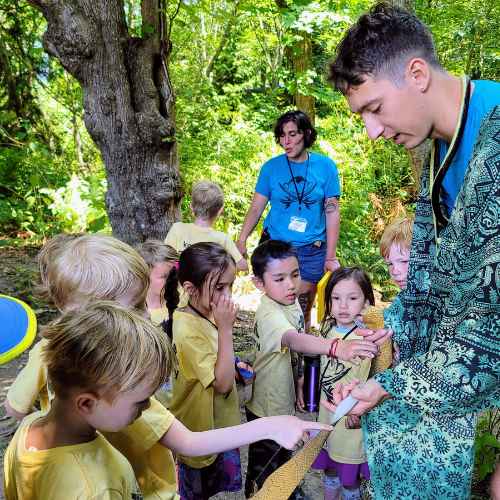
Parents of all persuasions share that they value gratitude in kids. Kids who say thank you, use their manners, are cognizant of other people and the kind things they do for them are skills many people see as “signs” that a kid is growing into a healthy adolescent and emerging adult.
Gratitude practices can start very young. Unlike other social skills, gratitude can be taught as soon as words are spoken and refined as kids get older and life gets more complex. At Kong Academy, we see gratitude as a foundational attribute in kids, our team and the communities our after school and summer camps are in. But perhaps not for the reason you may think.
Yes, it’s wonderful when kids use their manners. Kids with a “gratitude vocabulary” are socially aware of the people around them. The skill of “being aware of others” is a great starting place for learning many more sophisticated skills. And as kids learn via building blocks, a foundation of being aware of the people around them is invaluable.
It’s also a learned skill. That means kids learn it from the people around them.
PBS in their article on gratitude in kids reminds us that gratitude is modeled. “Children imitate adult behavior. In your daily interactions, model saying “thank you” to store clerks, teachers, librarians and family members. Encourage your child to follow suit.”
That means putting your kids in social environments where they see thankfulness in action will help them to practice the skill themselves.
All of that said, it’s important to remember that for most of us, gratitude takes time to learn. We may not feel it all the time and especially in moments when something feels unfair, unbalanced or unjust. There are two sides to creating a lifelong gratitude practice for your kids: modeling and practice.
Modeling Gratitude
This is as simple as it sounds. If you want your children to show gratitude for experiences, gifts, time or anything else that you value, it’s important for them to see it in action so they learn how it’s done.
Manners
Manners are a big deal that we don’t talk about as much today as we once did. Yet, the implicit understanding when someone uses their manners in the presence of others is that they respect the other person and wish them well. This can come in many forms:
- Saying “bless you” or “gesundheit” (German for the word “health” and the traditional response when someone sneezes
- Saying thank you when someone holds a door for you
- Saying I’m sorry when you make a mistake
- Saying forgive me when you have wronged someone
- Saying please when you want something
Manners offer both modeling and practice so it is a two-fold opportunity to help kids develop a gratitude practice.
Notice and acknowledge
When your child shows gratitude for something, take time to both notice and acknowledge it. Kids respond to positive feedback and want this kind of attention from their parents, caregivers and teachers. It doesn’t have to be a long discussion, in fact spending too much time can have the opposite effect for kids who are shy.
You can simply say something like: “wow, how cool that you said that” or “hey I see that you’re working on that, nicely done.”
Praise that is direct and clear indicates to kids what is working and further flags that skill as something “well done.” That subtle encouragement gives your child space to sort out how they want to behave and contributes to helping them develop agency over themselves.
Observing others
Just as you see good behaviors in your own kids, you are often around others who show more of the same. Noticing extends to other people in your family or social circle. By sharing with your child when you mutually see someone practicing gratitude, it gives greater context to how that’s done.
What’s important is the mutual part. Kids learn better through observing than storytelling in this case. And, in the beginning gratitude may seem overly connected to manners, but gratitude goes much deeper than that. Observing others and how they practice gratitude helps kids learn a broader definition of gratitude that extends to the bigger scope of their lives.
Setting Realistic Expectations
As much as you may wish your child felt gratitude at the same depth and level that you do, this is pretty unrealistic for young kids as the skill of developing empathy for others expands as kid’s mature. Kids showing jealousy, resentment, or other emotions that are the opposite of gratitude are also part of the natural learning curve.
When your child has a moment of feeling ungrateful for something in their life, use that as an opportunity to explore what they are feeling. Your child may think something is “unfair” or feel jealous that someone around them got a gift, toy, food item or something else of value that they did not.
Instead of turning to criticism that your child isn’t “grateful for what they have” this is a moment where you can explore what’s underneath the emotion. Often, feeling left out, skipped over, ignored or treated unfairly is underneath their lack of gratitude and in some situations, is completely warranted.
Developing emotional IQ happens as kids learn the various dimensions of their feelings. That means, it’s important for their emotional awareness to not just notice the good, but to also look at the other feelings that come up.
No one wants their child to be grateful for the crumbs in life.
As you embrace a gratitude practice for your child, it’s important to explore the wisdom underneath the feelings. Sometimes, life is unfair and that stings. Sometimes, you’re skipped over or not picked for a team and that brings up sadness or anger.
And sometimes those things happen in an unjust way, meaning someone was shown favoritism or given something unfairly. When that happens, feeling grateful would not be the “best” response. Fairness, equity and justice are important concepts for kids to learn as well.
When you explore what’s underneath their feelings, you have other teaching moments that will help your child learn more advanced skills like acceptance, speaking up and advocating for themselves.
Gratitude is an abstract skill and takes time for kids to really embrace. Starting at a young age with a gratitude practice and tying it to some basic social skills like manners gives kids a launch pad to grow into more complex skills later in childhood.
At Kong Academy, gratitude in all of these forms is valued. As is learning conflict resolution and speaking up. We know that when kids practice these skills early on, when there are less repercussions and more time for learning, it’s easier to ingrain healthy habits that can last a lifetime.
If you’re in the Seattle metro and seeking either an after school program or summer camp for your child, please explore all of our options.
And of course, follow us on YouTube for brain break videos that get kids moving with subtle doses of social emotional learning built in.
GET Access to the ULTIMATE PLAY DATE PACKAGE (Value: $49) for FREE!


7-Day Crystal Shard Adventure
Unleash your child’s potential with our 7-day crystal shard movement adventure!




